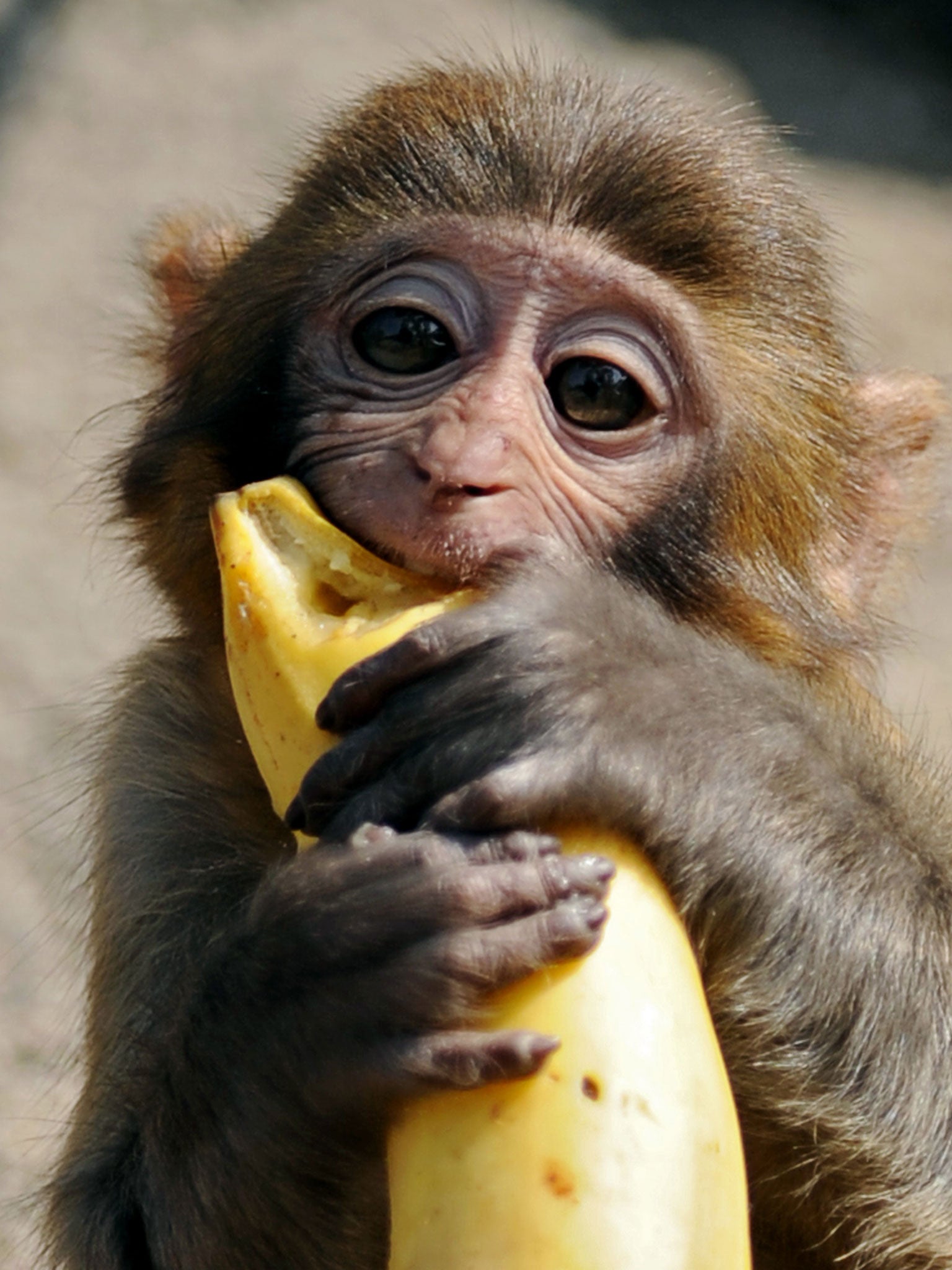Monkeys banned from eating bananas at Devon zoo
Zookeepers say the stereotypical food actually makes monkeys more aggressive, rots their teeth and can lead to diabetes

Monkeys at a zoo in Devon have been banned from eating bananas – for the sake of their health.
Zookeepers said the fruit grown and exported for human consumption have far higher levels of sugar than the ones monkeys would eat in the wild – to the point that it’s bad for their teeth and can lead to diabetes.
Despite the obvious cliché, the animals are now only allowed to have bananas as a special treat or when they need medication. Nutritionists likened it to giving children cake and chocolate, but added that unlike children the deprived monkeys “can’t complain”.
Experts at Paignton Zoo, Devon, said the sugar-free diet was working wonders for the animals – even making them calmer and more sociable.
Senior head keeper of mammals Matthew Webb said: “We have noticed an improvement in the condition of primate coats - in particular the colour and thickness of the fur of the Sulawesi crested black macaques.
“Smaller monkeys such as tamarins and marmosets are highly-strung animals and live in tight-knit social groups which can be quite aggressive at times. Reducing the sugar in their diets has calmed them down and made their groups more settled.”
Amy Plowman, head of conservation and advocacy, said visitors might be surprised by the concept of getting in between monkeys and the food perceived to be their favourite.
“People usually try to improve their diet by eating more fruit - but fruit cultivated for humans is much higher in sugar and much lower in protein and fibre than most wild fruit because we like our fruit to be so sweet and juicy,” she said.
“Giving this fruit to animals is equivalent to giving them cake and chocolate.
“Compared to the food they would eat in the wild, bananas are much more energy-dense - they have lots of calories - and contain much more sugar that's bad for their teeth and can lead to diabetes and similar conditions.
“It can also cause gastrointestinal problems as their stomachs are mostly adapted to eating fibrous foods with very low digestibility.”
Dr Plowman said it had not been too hard to wean the monkeys off bananas and give them vegetables instead.
“We reduced the amounts slowly so they had a long period to get accustomed to their new diet,” she said.
“They didn't get a choice but - unlike children - they couldn't complain.
“The alternative is vegetables and lots of them, especially leafy green veg. We still use starchy root veg.
“But we have reduced amounts as it can still be quite high in sugar and other readily-digestible carbohydrate. Leafy green veg is great because it is high in protein, fibre and lots of vitamins and minerals.”
A specialist pellet feed gives them the correct balance of nutrients, while small amounts of cooked brown rice can be scattered around enclosures to encourage foraging.
The animals do still get the occasional banana if they are unwell and the keepers need to make sure they take medication.
Dr Plowman said: “Putting it in a piece of banana works really well, as it's such a treat now.”
Subscribe to Independent Premium to bookmark this article
Want to bookmark your favourite articles and stories to read or reference later? Start your Independent Premium subscription today.

Join our commenting forum
Join thought-provoking conversations, follow other Independent readers and see their replies